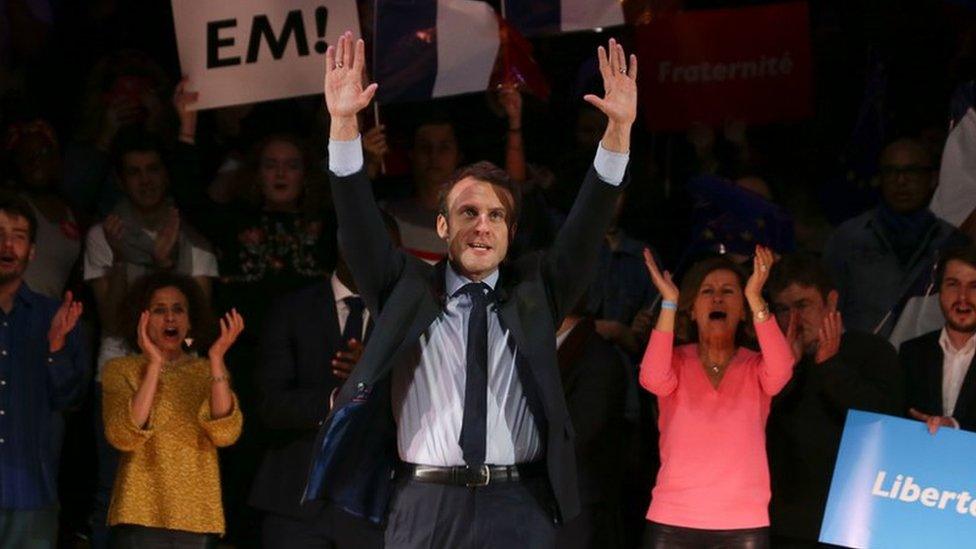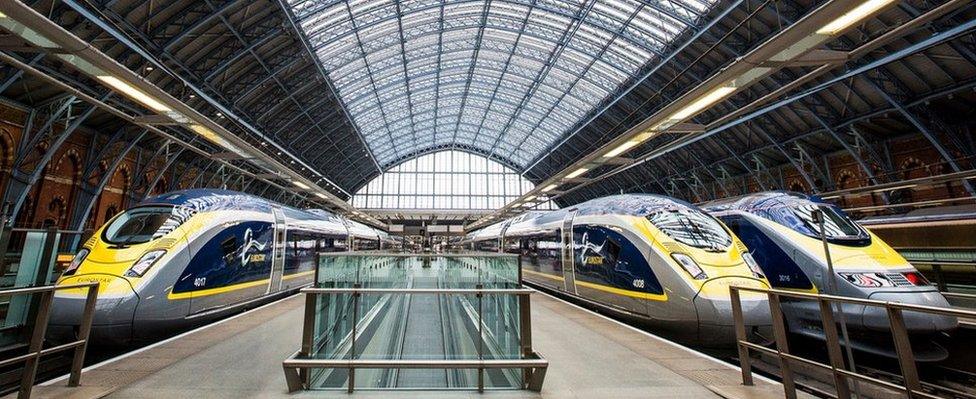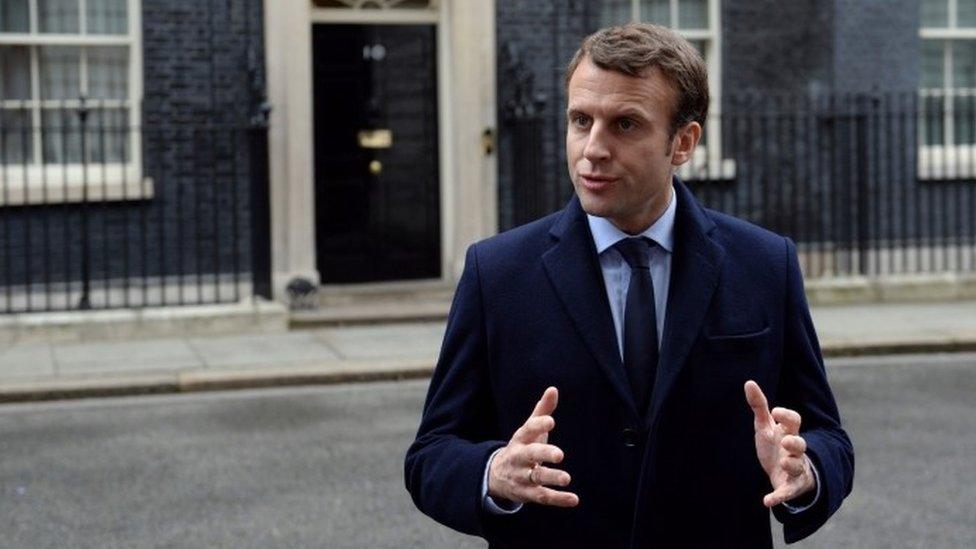France's liberal Macron courts expats in UK in battle for votes
- Published

"Rentrez!" - Mr Macron wants French expats in London to return home
For France's centrist presidential hopeful Emmanuel Macron this was the chance to engage close-up with thousands of expat voters.
"French Londoners, France loves you," he told a rally, urging them to come home because their country needed their drive and expertise.
He cited the frequently aired claim that London was France's sixth-largest city, with an estimated 200,000 French residents. In fact it would rank about 30th.
But what drew Mr Macron to the UK was perhaps not so much the number as the type of French people living in its capital. Many are young, educated, upwardly and geographically mobile - exactly the constituency he has galvanised at home.
Opinion polls suggest he has a chance of reaching the second-round presidential run-off in May and could even win the presidency.
Queuing to hear him speak in Westminster on Tuesday was Elise Siouve, 25, a biotechnology postgraduate at Cambridge University, who felt Mr Macron "understands the need to adapt to social and economic changes".

Mr Macron met the UK prime minister in London but was not invited to meet Chancellor Angela Merkel in Berlin last month
Another Cambridge student, Benjamin Vendrand-Maillet, 24, has set up a unit of Macron supporters at the university. For him, the centrist's market-friendly policies would work "for all French people, whether rich or poor, young or old" and he was best placed to defeat the populist Front National.
The main challenge for French candidates campaigning abroad is that turnout is low among expats. In the UK, it is typically about 30%. Why bother to vote when you have decided to make another country your home?
Macron's quest for Brexit bonus
But Mr Macron could benefit from the UK's vote to leave the EU, which he deeply regrets. French residents who may suddenly be unsure of their long-term status in the UK could find renewed interest in politics back home.
This is the case for Sylvie, a Macron fan who is studying for a doctorate in Oxford.
"I lost interest in France for four years because I found what was going on there dispiriting," she says. "Since Brexit I've realised that I might have to go back to France, so I'm much more involved now."

Mr Macron is fed up of hearing it's easier to start a business a "two-hour Eurostar ride away"
Restating the message he had delivered to UK Prime Minister Theresa May earlier in the day, Mr Macron promised the crowd of about 2,000 that he would attract talent back to France by freeing up the economy and encouraging risk-taking and enterprise.
He said he had been shocked when a French person he met on the Eurostar train to London had told him that he had gone to Britain to establish his start-up business because he had found it impossible to do so at home.
"What is at stake in this campaign," he said to loud applause, "is making sure that women and men who are willing to create jobs and wealth, who want to change their own lives and that of others, can never say 'I tried to do it in France but it's better to do it a two-hour Eurostar ride away'. I don't want to hear that ever again."
Mr Macron is hoping to buck an international trend towards anti-globalisation populism in a country where market reforms have never been popular.
Dip in the polls
The five-horse race for the French presidency remains wide open.
In recent weeks polls have consistently placed far-right leader Marine Le Pen ahead in the first round on 23 April. But they have also suggested she would lose the run-off two weeks later.

The four other main candidates are (L-R) Francois Fillon of the Republicans, Benoit Hamon of the Socialists, Marine Le Pen of the National Front and far-left candidate Jean-Luc Melenchon
That suggests the top prize in this election could go to the initial runner-up.
Mr Macron surged ahead of his rivals in January but his support has wobbled over the past week, following an outcry over his comment that the colonisation of Algeria had been a "crime against humanity".
Mainstream conservative Francois Fillon appears to be staging a comeback after damaging allegations over payments to his wife. Two left-wing candidates are not far behind.
But what is clear is that the winning candidate will be the one most able to mobilise his constituency - hence the potential importance of the expat vote in this race.
"It is too close to call," says Benedicte Paviot, London correspondent for France 24 television. "French presidential candidates can't afford to ignore French nationals abroad."
- Published21 February 2017
